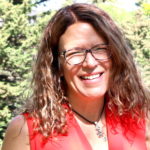By: Leslie Cramblet Alvarez, Director of the Office of Teaching and Learning
Last October, Provost Clark and the Faculty Senate kicked off Next Steps in Advancing Equity in Faculty Workload and Rewards. One of the intersecting initiatives in this project centers on teaching excellence and transforming teaching evaluation—both at the institutional and department/program level. In Spring 2022, three inaugural Departmental Action Teams (DATs) began their work interrogating current practices and reimagining teaching evaluation processes in their areas. The goal of this project is to promote greater equity and transparency and avoid an overreliance on Student Ratings of Instruction (SRIs). On October 14th, 2022, the three inaugural DATs shared their poster proposals for evaluation revision, engaged with participants about their experience, and shared reflections on their evaluation reform.
Join us in celebrating the hard work of the DATs and learn more about their projects in the links below. For an overview of the DAT program and its intersection with governance changes related to teaching evaluation led by the Teaching Excellence Task Force, see the DATs@DU Celebration—An overview of Departmental Action Teams and their teaching evaluation reform video.
Department of Teaching and Learning Sciences, Morgridge College of Education (poster)
- Norma Hafenstein, Ph.D., Daniel L. Ritchie Endowed Chair in Gifted Education, Clinical Professor
- Rashida Banerjee, Ph.D., Professor and Department Chair, Teaching and Learning Sciences
- Devadrita Talapatra, Ph.D., Associate Professor, School Psychology
- Rachel Lim, Ed.D. Student, Curriculum and Instruction, Senior Academic Advisor, Office of Academic Advising
- Jared Del Rosso, Ph.D., Associate Professor, Department of Sociology & Criminology (DAT Facilitator)
University Writing Program, Academic Affairs (poster)
- Sheila Carter-Tod, Ph.D., Executive Director, University Writing Program and Associate Professor of English
- Brad Benz, Ph.D., Teaching Professor
- Richard Colby, Ph.D., Director for First-Year Writing & Teaching Professor
- Rob Gilmor, Ph.D., Teaching Associate Professor
- Sarah Hart Micke, Ph.D., Teaching Professor
- Juli Parrish, Ph.D. Director of the Writing Center & Teaching Professor
- Joe Ponce, MFA, Office Manager, University Writing Program & Writing Center
- Angie Sowa, Ph.D. Teaching Professor
- Barbekka Hurtt, Ph.D, Teaching Associate Professor, Biological Sciences (DAT Facilitator)
First-Year Language Program, Center for World Languages and Cultures,
College of Arts, Humanities, and Social Sciences (poster)
- Emily Sposeto, MA, Teaching Associate Professor
- Virginie Cassidy, Ph.D., Director and Teaching Associate Professor
- Polina Maksimovich, Ph.D., Teaching Assistant Professor
- Kate Rice, MA, Visiting Teaching Assistant Professor
- Virginia Pitts, Ph.D., Director of University Teaching (DAT Facilitator)
What we love about the DAT experience at DU
An important part of the DAT model is the support of a DAT facilitator. Drs. Jared Del Rosso, Barbekka Hurtt, and Virginia Pitts were our facilitators for 2021–22 and will continue their roles for Cohort 2. We asked them to share their thoughts about the experience.
Jared Del Rosso

As a DAT facilitator, I had the opportunity to work with an amazing group from the Morgridge College of Education. As a CAHSS faculty member, it was rewarding to see how teaching evaluation is conducted in another division at DU. Morgridge has its own unique framework, and I learned a lot from the College’s DAT. Specifically, the Team’s work to develop tools around end-of-quarter evaluations and peer review led me to learn about how other universities are using student evaluations and peer reviews to improve teaching. I also saw in Morgridge’s work how other universities’ tools could be—and indeed have to be—effectively adapted for the unique contexts of DU teaching.
Barbekka Hurtt
 As a DAT facilitator and NSM faculty member, I was privileged to work with and learn from the Writing Program faculty directly and the other DAT teams indirectly. The opportunity to engage with a cross-functional, interdisciplinary group on a teaching and learning initiative is rare; the opportunity to re-envision how teaching is evaluated and supported and engage in thoughtful change is even rarer. The work that the DU Writing Program completed to create a more equitable and transparent teaching support and evaluation process was incredibly impressive and informative, both for their own program but also for the larger conversation we’re having at DU about how we value, evaluate, and reward meaningful teaching. From this DAT experience, it became clear to me that DU can lead in this regard as much as we can learn from other universities.
As a DAT facilitator and NSM faculty member, I was privileged to work with and learn from the Writing Program faculty directly and the other DAT teams indirectly. The opportunity to engage with a cross-functional, interdisciplinary group on a teaching and learning initiative is rare; the opportunity to re-envision how teaching is evaluated and supported and engage in thoughtful change is even rarer. The work that the DU Writing Program completed to create a more equitable and transparent teaching support and evaluation process was incredibly impressive and informative, both for their own program but also for the larger conversation we’re having at DU about how we value, evaluate, and reward meaningful teaching. From this DAT experience, it became clear to me that DU can lead in this regard as much as we can learn from other universities.
Virginia Pitts
 As I reflect on my experience as DAT facilitator, I feel such gratitude to the members of the Center for World Languages and Cultures (CWLC) DAT team for including me in the wonderful work they did together! I was consistently struck by the ways in which they really leaned into this opportunity to reflect deeply with each other about the kind of culture they hope to co-create in their department and, as a part of that, the kind of teaching they aspire to. It was so encouraging to me to recognize through them the ways in which this process can be truly generative, in that it can be first and foremost about fostering community—community in which faculty are learning and working together to create engaging, learning-rich experiences for their students. The positive, creative, forward-looking approach the CWLC team brought to this work is inspiring to me, and it makes me excited to see not only what happens with this work in the CWLC, but what happens with the other DAT’s who were a part of the work this year and what happens as other departments engage in this work moving forward.
As I reflect on my experience as DAT facilitator, I feel such gratitude to the members of the Center for World Languages and Cultures (CWLC) DAT team for including me in the wonderful work they did together! I was consistently struck by the ways in which they really leaned into this opportunity to reflect deeply with each other about the kind of culture they hope to co-create in their department and, as a part of that, the kind of teaching they aspire to. It was so encouraging to me to recognize through them the ways in which this process can be truly generative, in that it can be first and foremost about fostering community—community in which faculty are learning and working together to create engaging, learning-rich experiences for their students. The positive, creative, forward-looking approach the CWLC team brought to this work is inspiring to me, and it makes me excited to see not only what happens with this work in the CWLC, but what happens with the other DAT’s who were a part of the work this year and what happens as other departments engage in this work moving forward.
We are seeking applicants to Cohort 2 of the DAT program
Now that Cohort 1 has completed the program and is transitioning to implementation, we are seeking the second of three DATs@DU cohorts. Participants work closely with a DAT facilitator and attend scheduled events, including a working retreat, and receive $1,000 upon submission of program deliverables.
The DAT program is funded through the R1 Our Way Teaching and Faculty Satisfaction Initiatives. Interested in forming a DAT for Cohort 2? Read our call for proposals or contact Leslie Cramblet Alvarez at Leslie.alvarez@du.edu.


